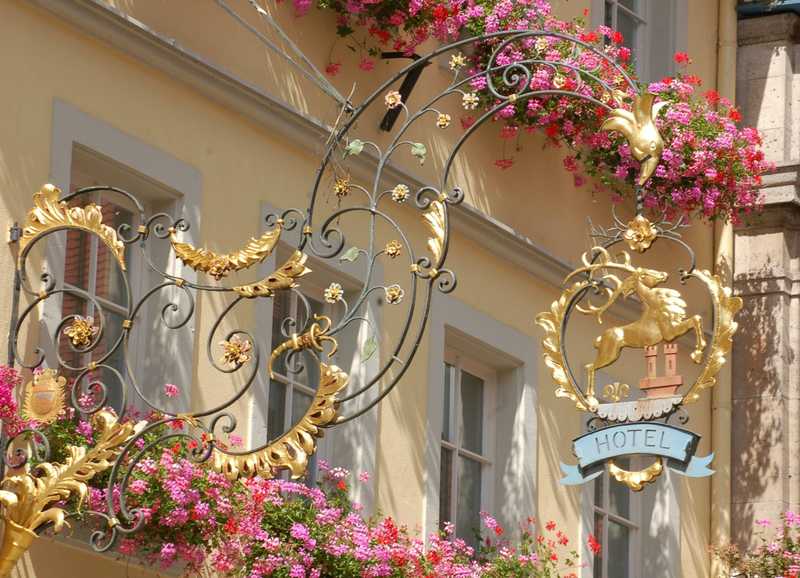If Ontario lawmakers structure the rules around recreational cannabis just so, tourism leaders in Canada’s most-populous province foresee a massive boost for their industry.
Recreational marijuana consumption will be restricted to private residences when legalization comes into force, but the tourism industry is criticizing the restriction as being problematic for tourists. They point to places like Las Vegas where recreational marijuana is legal, but consuming the plant is only permissible in a private residence—not in a hotel. So, how can Ontario tourism officials ensure that visitors can buy legal cannabis and have a legitimate place to consume it?
Legal Lessons on Marijuana Consumption From Las Vegas
In Las Vegas, where a visitor doesn't need to leave their hotel complex during their entire stay, locals and tourists remain frustrated that they can buy marijuana legally, but not consume it. In March, the Las Vegas Review-Journal reported that the state’s Gaming Policy Committee recommended that cannabis use and sales be banned from all casino resort properties. Part of the problem is that companies with gaming licences in Nevada, like all of the world-famous casinos on The Strip, are required to comply with both federal and state law. And in the eyes of the U.S. government, marijuana is an illegal, controlled substance.
In Canada, Bill C-45 gives provinces, not the federal government, the power to decide how and where adults consume marijuana, which would hopefully complicate things a little less. Here are Ontario’s most prominent opportunities to integrate cannabis with tourism.
Social-Use Cannabis Cafes & Lounges Can Solve the Consumption Conundrum
Social-use cannabis cafes are opening in Denver, private cannabis clubs do marvellously in Barcelona—and now Ontario is considering allowing them, too.
While some small towns in Ontario move to keep the Ontario Cannabis Store out of their jurisdiction, social-use cannabis cafes could be a new source of revenue drawing visitors with the idea of consuming marijuana that they bring onto the premises without worry of arrest or a smoking charge on their hotel bill.
And then there are those Ontario residents who rent their apartment or house. Though they’re not visitors, they may also have consumption restrictions because their landlord has forbidden it. Cannabis cafes would solve their problem and give them a legal place to smoke or vape marijuana.
Cannabis-Friendly Adult Zones Could Pacify Anti-Marijuana Campaigners
Remember when Disney World in Orlando had a place called Pleasure Island, full of nightclubs and alcohol for adults? "Adult entertainment districts” are an efficient way of keeping restricted activities in a controlled area. Good city planning allows for zones like this that are far away from those frequented by kids—parks, schools, libraries. This could be a way to appease anti-cannabis campaigners concerned that marijuana products would easily find their way into the hands of young people.
In the cannabis-friendly version, they denote areas of a community where marijuana could be used freely, and visitors could enjoy casinos and nightlife, restaurants, bars, spas and more. They're an excellent tool for drawing even overnight business guests out when they would otherwise not leave the hotel.
Hotels That Allow Cannabis Consumption
According to Ontario’s “Proposed Places of Use Regulations”, the Ministry of the Attorney General proposes permitting the use of recreational cannabis in hotels, motels, inns and even in motor vehicles or boats that substitute as residences.
Municipalities with an Ontario Cannabis Store location can use cannabis-centric lodging as a way to bring life back to cities where the primary industry is dwindling without them becoming drive-throughs for marijuana. The message is: Don't just come and buy marijuana—take a look around and stay the night.
Niagara Falls Embraces Marijuana as a Tourist Attraction
Many Ontario towns are debating whether to ban retail cannabis shops. But others, including Niagara Falls, see it as a way to help enhance economic activity beyond Clifton Hill. The honeymoon capital of the world has hotels, casinos, attractions, restaurants all in proximity to sizeable geological water features.
Niagara Falls has already shown that it isn’t afraid to feature cannabis for tourists and residents alike. The city plays host to cannabis-focused conventions, as long as they eschew the presence of any cannabis products. Plus, it's home to Canada’s first commercial cannabis graduate certificate program, launching in the fall of 2018 at Niagara College.
Wayne Thomson, city councillor and chairman of Niagara Falls Tourism, foresees the region getting a substantial boost if the Ontario government implements the proposed cannabis tourism regulations. Marijuana’s economic value could easily rival the region’s wine industry if changes to Ontario’s Cannabis Act open the market up to legal micro-cultivation, medicated edibles makers and consumption lounges.
One lesson from Vegas that Niagara can learn from? Let tourists legally smoke or vape marijuana in hotels.
What the Opposition Says & Where Legal Cannabis Tourism Stands Now
Critics of the push for legal marijuana say cannabis tourism will do more harm than good. They worry about intoxicated driving, consumers moving onto harder drugs and public health. They point to Denver's increase in homelessness and a decline in convention organizers choosing Colorado as the place to hold their conferences.
But in places wholly dependent on tourism, cannabis dispensaries should be complemented by spaces in which it's safe to partake. As seen in Denver and Barcelona, these spaces don't typically become meccas for vice if precautions are taken to weave parameters into the established law. We’ll have to wait until the summer to see what Ontario’s cannabis consumption laws end up looking like.
Photo credit: Ana
